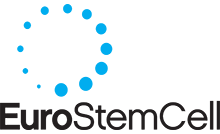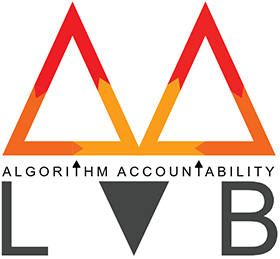PLEASE NOTE: This study is no longer recruiting participants and the results are currently being analysed. Please check back here for updates. Thank you for all your participation!
EuroStemCell is looking for participants to contribute to a study about stem cell treatments on Google Search. The study is being undertaken by Anna Couturier, a PhD student at the University of Edinburgh, along with PhD students and researchers at the University of Kaiserslautern's Algorithm Accountability Lab. Read on to learn more about this opportunity to take part and keep up to date on Twitter with @eurostemcell!
About the Project
“Google, can you help me find a cure?”
Most of us have found ourselves using Google to find more information when we have questions about our health. From researching symptoms to learning more about a newly diagnosed illness or condition, Google is a steady companion in our healthcare decision making.
But when you Google, do you see the same results and advertisements as your colleagues at work, your family, or your friends? If not, why not? What quality of information on stem cell treatments does Google present to users? How much are we being targeted by advertisements of unproven and potentially hazardous treatments? Does Google personalize results and advertisements for certain conditions or diseases?
The direct-to-consumer marketing of unproven stem cell treatments has grown considerably over the past decade. Private clinics, offering treatments for major illnesses like Parkinson’s Disease, Multiple Sclerosis and Diabetes have been reported to funnel a significant percentage of annual profit into online marketing – including Search Engine Marketing (SEM) (Petersen et al, 2016). This study seeks to measure the quality of results presented within search results and measure the impact of Google's algorithm on the health information presented to users like you.
We think this is important to know and we’d like to find out more. With your help.
We simply do not know about the impact of search engine algorithms on the information presented to us about healthcare online. We also do not know how targeting advertisement in search results may be impacting individuals affected by life-changing conditions and diseases. We want to independently check this with your help. By taking part in this study, you are contributing to the better understanding and transparency of health information online. We cannot do it without you.
You can use the hashtags #datadonation and #eurostemcell to spread the word!
How does it work?
In order to tackle the issue of personalisation on Google Search, we've designed a browser plugin (also known as an "add-on" or "extension") that allows us to see what you see when you search for a set list of terms like "Stem Cell Treatment Cost". We do not look at your search history or results but run a predetermined set of search terms to see what would be returned if you had searched for them on your browser. Think of it as taking a snapshot of specific search results so that we can see differences in what is returned for different people. The more users support us, the better the results will be.
To take part in the study, you simply install the extension from the Google Chrome or Firefox store, answer a short survey to allow us to sort you into specific study groups and then allow the plugin to run in the background. The data you donate will allow us to determine what factors have an impact on how Google weighs and displays search results.
Download the appropriate plugin:
By installing the plug-in on your computer, you consent to take part in the study and agree to the Privacy Agreement.
You can withdraw consent at any time by uninstalling the plug-in.
With this plugin, you enable us to send search queries to Google through your browser up to six times a day (every 4 hours). This only happens when your computer is switched on and the browser is open.
Results of the first result page from each Google Search are automatically sent to us. The search queries contain the common queries around stem cell treatments - and in particular those relating to Parkinson’s Disease, Multiple Sclerosis and Diabetes. You will also be asked to complete a short survey to provide us with further anonymised information about yourself as a Google Search user.
The plugin sets the query with the current setting of the browser into which it is integrated. Private data will not be saved. It will send whether you were logged in to Google during the search (but not your identity!). In case you are signed-in, we are not informed of your name or account information.
Example list of search queries:
- Stem cells
- Stem cell therapy
- Stem cell treatment costs
- Stem cell treatment Parkinson’s Disease
- Stem cell treatment Multiple Sclerosis
- Stem Cell treatment Diabetes
FAQ - frequently asked questions
- Why is this project necessary?
Does Google personalize search results related to healthcare? How do result pages and targeted advertisements change? Does a person impacted by a condition like Parkinson’s, Multiple Sclerosis or Diabetes receive more targeted advertisements of unproven treatments? Our research project “Google and Unproven Stem Cell Treatments” wants to find as much information as we can about these questions. When we don’t know where health information is coming from - or who is targeting us as both users and patients - our health is at risk. - Does the plugin look at my browser history, previous searches or personal information?
NO - this plugin does not view or record any previous search history or personal information. The plugin cannot view, record or transmit your personal browser history, search history, or personal information. The plugin can only open a new window within Chrome or Firefox and conduct a fresh search of the pre-determined list of questions. No personal information is saved or transmitted by the plugin. - Who is behind this project?
The project is a cooperation between EuroStemCell, the Algorithm Accountability Lab at Technische Universität Kaiserslautern and Science, Technology and Innovation Studies at the University of Edinburgh. - How can I participate?
We offer Plugins / Extensions / Add-ons for Firefox and Chrome on the desktop. - Why do I see a new browser window every time the plugin conducts a search?
In order to make the search as realistic as possible, the plugin has to open an actual website and then read (scrape) the contents. Unfortunately, there’s no other way to do this. We know it’s annoying, but hope that you’ll support us anyway. - Is there a mobile version?
No. Mobile browsers generally do not allow plugins. We could not create an independent mobile app within this project. Let us know if you do! - Which data of mine is used?
We use:
- The identification number of the plug-in (ID)
- Your anonymised survey results
- Whether or not your Google account was logged in during the data collection
- The first Search Engine Result Page (SERP) of the classic google search and the advertisments and top stories presented for each search term - Which data of mine is NOT used?
We DO NOT use use:
- Your IP address
- Your search history (past or future)
- Your Google login details
- Any identifiable personal information under the GDPR - Who made the plugin?
The Algorithm Accountability Lab at Technische Universität Kaiserslautern has developed the plug-in and database system which is located on a server at the Technische Universität Kaiserslautern. - What happens with the results?
The anonymised data are published freely and available to everyone. Only the identification number of the individual plugins / add-ons are erased. All data including the identification numbers will be published after the end of the project. Even with the identification number, no conclusions can be drawn about the identity of a person or their browsing behaviour. - Will the plugin automatically be deactivated after the end of the data collection period?
On February 1st, 2020, the plugin automatically terminates its searches. However, you must manually disable or uninstall it (see next question). - I do not want to continue to donate. How can I disable the plugin / add-on again?
Please go to the Extensions / Add-ons menu in your browser and deactivate or uninstall the extension / add-on. - I have problems with the plugin.
Please contact our researchers using the contact form at the bottom of this page.
Privacy Statement
The purpose of this statement is to ensure that you have read and understood the information about the study and are fully aware of your rights should you decide to take part. If you would like to take part, please indicate this by reading the following questions. Consent is required in order to download and install this plug-in.
Please note: since data is anonymised at the point of contact, we cannot retroactively withdraw any data collected before uninstallation.
Declaration of consent:
With the installation of the plugin I confirm that the first 10 search results and ads of Google on Google.com (in "All") including the above mentioned additional data (plugin ID, time, exact query, approximate location) on my browser will be made available to the public under a CC-0 license for analysis. I understand that the plugin regularly searches for all healthcare related queries listed above.
I agree that the following data will be collected, processed and published:
- A general location, derived from the IP address, corresponding in precision to approximately your postal code.
- The plug-in ID
- The exact search query
- The time of the search
- The result of the search (everything on the first page of the search results)
- The language setting of the browser
- Whether you are logged in as a user with Google.
I can disable or de-install the plugin at any time. No further data is sent with the deactivation of the plug-in or with its de-installation.
By downloading the plugin, I confirm that I have read and understand the privacy statement, www.eurostemcell.org/datadonation, for the above study. I have had the opportunity to consider the information and ask questions which have been answered satisfactorily
I understand that my participation is voluntary and that I am free to withdraw at any time, without giving any reason.
I understand that any personal data collected during the study will be treated with confidence and handled in accordance with the Data Protection Act 1998 and GDPR.
I agree to take part in the above study.
Interested in our methodology?
We are striving to publish all anonymised data and methodological tools used in this study for the purpose of transparency and for the benefit of future research. Once the project is concluded, the data and Plug-in software will be published on Git.hub. Please keep in touch with us for future developments.
Partners
The project is a cooperation between EuroStemCell, the Algorithm Accountability Lab at Technische Universität Kaiserslautern and the Institute for Science, Technology and Innovation Studies at the University of Edinburgh.








